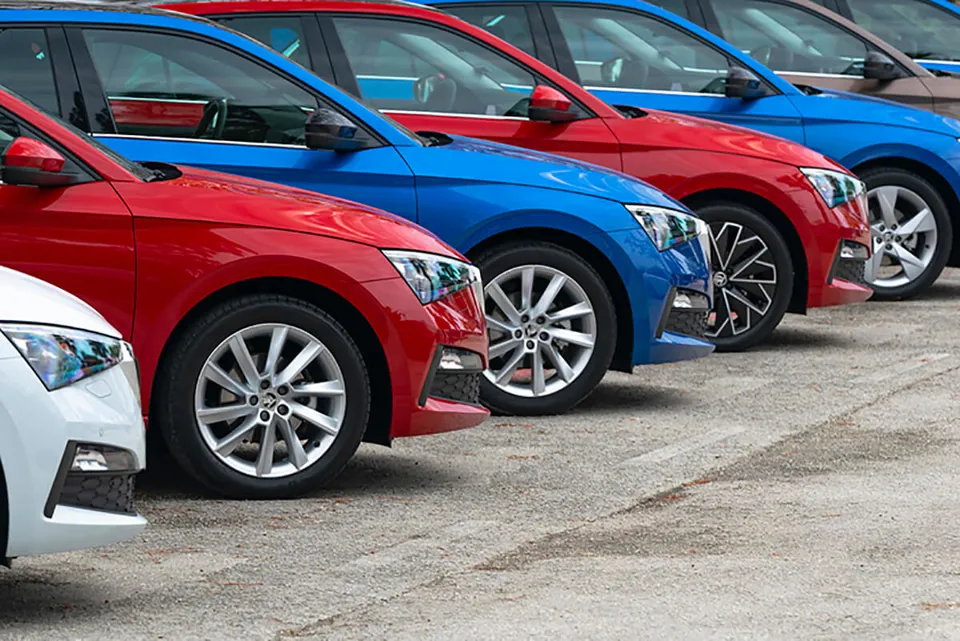Free Reasons To Choosing Car Rental Websites
Wiki Article
How Can You Assess The Insurance Coverage Offered By The Rental Company For The Vehicle?
It is crucial to examine the options for insurance and coverage provided by the rental company to avoid costly expenses and make sure you're well protected. Here's how to effectively look over the insurance policy when renting a car. Understand Basic Coverage: Start by understanding what insurance coverage is provided in the rental contract. The majority of rental companies offer basic liability insurance, which covers damage to third-party property as well as bodily injuries in the case of an accident in which you're at fault. This coverage can include deductibles and limits.
Evaluate Additional Coverage Options In addition to the basic insurance, rental companies provide different insurance options that provide additional security. There are two kinds of coverage that are common: Collision Damage Waiver which can reduce or eliminate the financial liability which you have to pay for damage caused to the rental car, and Loss Damage Waiver which covers theft or damages to your rental.
Review the Deductibles and Coverage. Examine the coverage limits as well as deductibles and other terms that are associated with every type of insurance. Determine the maximum amount the insurance will cover for loss or damage in addition to the amount you have to pay (deductible) before coverage begins.
Personal Insurance Policies. Find out if you have coverage on your credit card or insurance policy. Certain credit cards provide second-party coverage for rental cars if you use the card to pay. The same applies to rental cars. your auto insurance policy could cover rental vehicles, however it will depend on your policy.
Assess Your Risk-Tolerance: When choosing whether or not to get additional insurance, take into consideration your risk tolerance along with your financial position. If you're looking to have security and are concerned about theft or damage of the car, buying insurance coverage may be worth it. If you have adequate coverage elsewhere, you may decide to not take advantage of the insurance offered by the rental company to save money.
Ask About Exclusions and Other Exclusions. Find out about any exceptions or exclusions within the policy like restrictions on off-road driving or the use of the vehicle commercially. To avoid unpleasant surprises, be sure you are familiar with the terms and conditions of insurance.
Document Damages: Prior to accepting a rental car, inspect it carefully for any signs of wear and tear. Note any dents or scratches on the rental contract, and take photos or videos as proof. This will prevent you from being held liable for pre-existing damage when you return your vehicle.
Examining the insurance and other options offered by the rental company will help you make the right choice. So you'll be covered during your rental period without incurring any unnecessary costs. Check out the top worldwide car rentals for more info including car rental prices near me, premium car rental, car hire car, good rent a car, renting a car under 25, vehicle rent, rent a car companies near me, near me rent a car, luxury cars to rent near me, extotic car rental and more.

How Do You Check Your Car For Damages Or Signs That It's Damaged?
To avoid being held accountable for any pre-existing issues upon return and to avoid being held accountable for any pre-existing issues, you must examine the rental car prior to accepting. Take these steps to conduct a a thorough inspection External Inspection:
Then, carefully walk around the exterior of the car and inspect for any damage, like scratches, dents or dings.
Be particular about the bumpers and doors, the mirrors, fenders, and all other areas susceptible to be damaged.
Examine the windshield for cracks and chips.
Check under the car to determine whether there are any leaks or damages.
Interior Inspection
Shut all the doors, including the trunk and check the interior of your car.
Examine the seats for scratches and stains.
Examine all adjustments for the seat including the driver's chair for a check to see if they work in a proper manner.
Check the steering wheel, dashboard and the controls for problems or damage.
Verify the condition and performance of the cooling, heating and ventilation system.
Test your audio system and turn signals, lighting and other electronic parts.
Functional Inspection
Start your car and look for any warning or error messages warning lights on the dashboard.
Test accelerator and brakes (if applicable) to ensure smooth operation.
Switch on the headlights, high beams, brake lights and turn signals to ensure they are working correctly.
Test the windshield washers, washer liquid, horn and emergency/parking braking.
Document any Damage
If you are experiencing any issues or damage, document them using the rental agreement or the smartphone application.
Make videos and photos of your vehicle from multiple angles. Make sure you focus on areas that are damaged or show evidence of wear.
On the rental agreement be sure to note the location the size and extent of any scratches, dents or other damages.
Before accepting the vehicle, bring any damage to the rental company representative's attention.
Report Damage
Inform the representative at the rental agency of any damage you might have found during the inspection.
Request that they document the damage in their files and provide you with copies of the report of inspection.
Make sure both you and your representative from the company agree to the contract or inspection reports to acknowledge any damage that is already present.
Take these steps to safeguard yourself from liability. If you thoroughly inspect your rental car and looking for indications of wear prior to accepting the car, you will make sure that your rental experience is smooth.

What Are The Most Important Things To Know About The Company's Policy Regarding Fuel?
It is crucial to be aware of the fuel policy of the rental company you are renting from in order to avoid any extra charges. This will also make sure that you can have an easy and quick return. How to clarify the fuel policy? Go through the Rental Agreement: Go through the rental agreement provided by the business with care. This document will usually outline the fuel policy. It typically is found in the section entitled "Fuel Policy," or "Refueling."
Check the Terms & Conditions: Make sure you understand the details of the fuel policy. Find out if you have to pay a service charge for refilling your tank, or if the vehicle is required to return with a fully fueled tank.
Ask Rental Company Representatives: If the fuel policy is not explicit in the rental contract or if you have any questions, don't hesitate to ask the rental company's representatives for clarification. For more information on the fuel policy, you can contact their customer support department by phone, email, or a live chat.
Some rental companies ask you to return your vehicle that is fully fueled to avoid extra charges. Fill up your tank at the closest gas station to avoid charges for refueling. For proof of fueling you should keep the receipt.
Some companies let you buy a fuel tank for an agreed price prior to collecting your car. This allows the driver to return the vehicle at any gas level without having to pay. The fuel you use up will not be refunded.
Refueling Costs The rental company may charge you if you return the automobile having less fuel than the one you purchased, and you didn't purchase it in advance. This usually covers the cost for fuel and the cost of service. It could be significantly greater than the local prices for gasoline.
Know the The penalties: Be aware of any penalties or fees associated with the policy on fuel, including administrative fees for failure to adhere to the requirements for refueling. Understanding these penalties upfront will allow you to avoid surprise costs when you return the vehicle.
Make a Plan. You should consider the fuel policy for your rental car company and also your travel schedule when planning your refueling. Factor in time to locate an outlet near you and refill your tank before returning the car in order to avoid refueling charges.
You can avoid additional charges when you understand and follow the company's policy on fuel.
